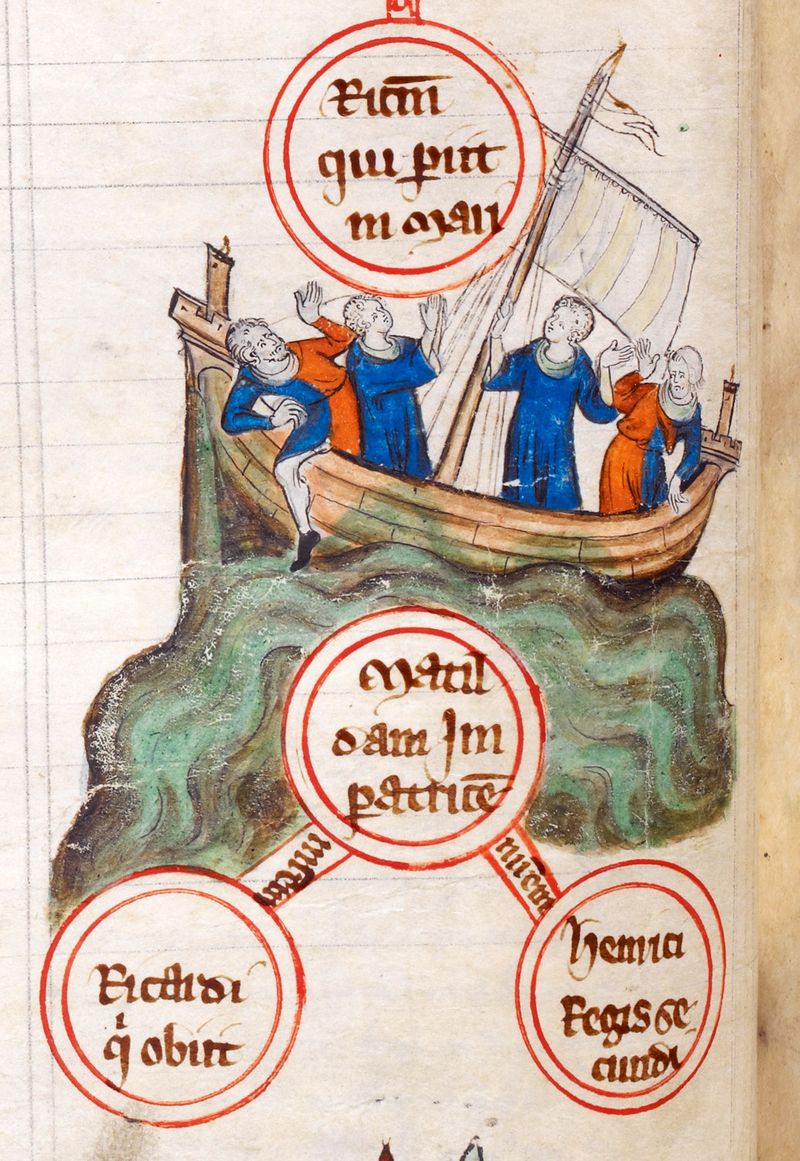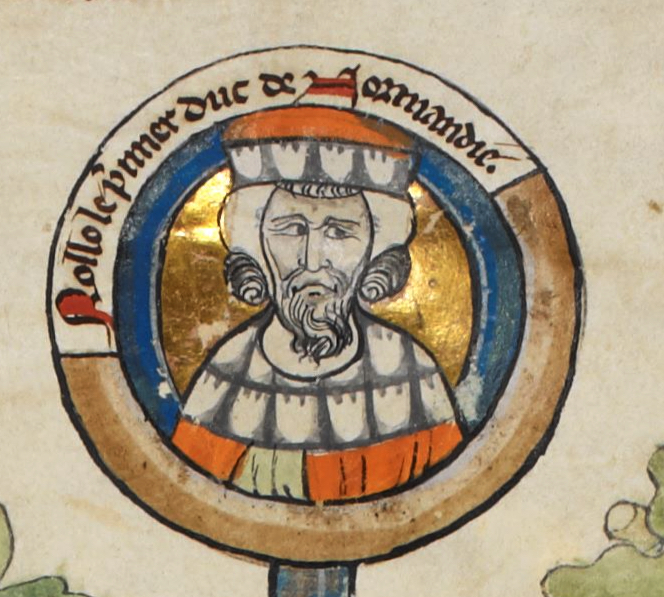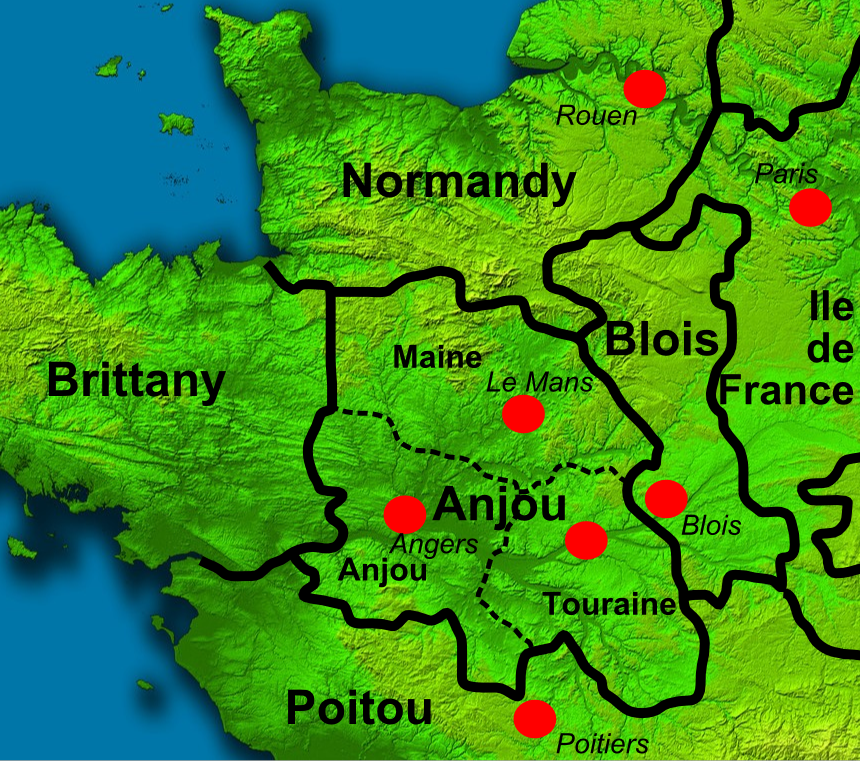|
William Adelin
William Ætheling (, ; 5 August 1103 – 25 November 1120), commonly called Adelin (sometimes ''Adelinus'', ''Adelingus'', ''A(u)delin'' or other Latinised Norman-French variants of '' Ætheling'') was the son of Henry I of England by his wife Matilda of Scotland, and was thus heir apparent to the English throne. His early death without issue caused a succession crisis, known in history as the Anarchy. Early life William was born in Winchester. His father, King Henry I of England, had married his mother, Matilda of Scotland, to conciliate his English subjects. Matilda was descended from Edmund Ironside and was a great-niece of Edward the Confessor; as such, the marriage represented a union between the new Norman rulers of England and the old Anglo-Saxon dynasty. Henry's hopes for his succession rested upon William, who was, according to Henry of Huntingdon, "a prince so pampered" that he seemed "destined to be food for the fire." Duke of Normandy During Henry I's lifetime, Will ... [...More Info...] [...Related Items...] OR: [Wikipedia] [Google] [Baidu] |
Duke Of Normandy
In the Middle Ages, the duke of Normandy was the ruler of the Duchy of Normandy in north-western Kingdom of France, France. The duchy arose out of a grant of land to the Viking leader Rollo by the French king Charles the Simple, Charles III in 911. In 924 and again in 933, Normandy was expanded by royal grant. Rollo's male-line descendants continued to rule it until 1135. In 1202 the French king Philip Augustus, Philip II declared Normandy a forfeited fief and by 1204 his army had conquered it. It remained a French Province of France, royal province thereafter, still called the Duchy of Normandy, but only occasionally granted to a duke of the royal house as an apanage. Despite both the 13th century loss of mainland Normandy, and the extinction of the duchy itself in modern-day, republican France, in the Channel Islands the monarch of the United Kingdom is regardless still referred to by the title "Duke of Normandy". This is the title used whether the monarch is a king or a queen ... [...More Info...] [...Related Items...] OR: [Wikipedia] [Google] [Baidu] |
Louis VI Of France
Louis VI (late 1081 – 1 August 1137), called the Fat (french: link=no, le Gros) or the Fighter (french: link=no, le Batailleur), was King of the Franks from 1108 to 1137. Chronicles called him "King of Saint-Denis". Louis was the first member of the house of Capet to make a lasting contribution to centralizing the institutions of royal power. He spent almost all of his twenty-nine-year reign fighting either the " robber barons" who plagued Paris or the kings of England for their continental possession of Normandy. Nonetheless, Louis VI managed to reinforce his power considerably and became one of the first strong kings of France since the death of Charlemagne in 814. Louis was a warrior-king, but by his forties his weight had become so great that it was increasingly difficult for him to lead in the field (hence the epithet ). Details about his life and person are preserved in the , a panegyric composed by his loyal advisor, Suger, abbot of Saint Denis. Early life Louis was b ... [...More Info...] [...Related Items...] OR: [Wikipedia] [Google] [Baidu] |
1103 Births
Eleven or 11 may refer to: *11 (number), the natural number following 10 and preceding 12 * one of the years 11 BC, AD 11, 1911, 2011, or any year ending in 11 Literature * ''Eleven'' (novel), a 2006 novel by British author David Llewellyn *''Eleven'', a 1970 collection of short stories by Patricia Highsmith *''Eleven'', a 2004 children's novel in The Winnie Years by Lauren Myracle *''Eleven'', a 2008 children's novel by Patricia Reilly Giff *''Eleven'', a short story by Sandra Cisneros Music *Eleven (band), an American rock band * Eleven: A Music Company, an Australian record label *Up to eleven, an idiom from popular culture, coined in the movie ''This Is Spinal Tap'' Albums * ''11'' (The Smithereens album), 1989 * ''11'' (Ua album), 1996 * ''11'' (Bryan Adams album), 2008 * ''11'' (Sault album), 2022 * ''Eleven'' (Harry Connick, Jr. album), 1992 * ''Eleven'' (22-Pistepirkko album), 1998 * ''Eleven'' (Sugarcult album), 1999 * ''Eleven'' (B'z album), 2000 * ''Eleven'' (Reamonn ... [...More Info...] [...Related Items...] OR: [Wikipedia] [Google] [Baidu] |
Dukes Of Normandy
In the Middle Ages, the duke of Normandy was the ruler of the Duchy of Normandy in north-western France. The duchy arose out of a grant of land to the Viking leader Rollo by the French king Charles III in 911. In 924 and again in 933, Normandy was expanded by royal grant. Rollo's male-line descendants continued to rule it until 1135. In 1202 the French king Philip II declared Normandy a forfeited fief and by 1204 his army had conquered it. It remained a French royal province thereafter, still called the Duchy of Normandy, but only occasionally granted to a duke of the royal house as an apanage. Despite both the 13th century loss of mainland Normandy, and the extinction of the duchy itself in modern-day, republican France, in the Channel Islands the monarch of the United Kingdom is regardless still referred to by the title "Duke of Normandy". This is the title used whether the monarch is a king or a queen. History of the title There is no record of Rollo holding or using any t ... [...More Info...] [...Related Items...] OR: [Wikipedia] [Google] [Baidu] |
The Anarchy
The Anarchy was a civil war in England and Normandy between 1138 and 1153, which resulted in a widespread breakdown in law and order. The conflict was a war of succession precipitated by the accidental death of William Adelin, the only legitimate son of King Henry I, who drowned in the sinking of the ''White Ship'' in 1120. Henry sought to be succeeded by his daughter, known as Empress Matilda, but was only partially successful in convincing the nobility to support her. On Henry's death in 1135, his nephew Stephen of Blois seized the throne, with the help of Stephen's brother Henry of Blois, who was the bishop of Winchester. Stephen's early reign saw fierce fighting with disloyal English barons, rebellious Welsh leaders, and Scottish invaders. Following a major rebellion in the south-west of England, Matilda invaded in 1139 with the help of her half-brother Robert of Gloucester. In the initial years of civil war, neither side was able to achieve a decisive advantage; the ... [...More Info...] [...Related Items...] OR: [Wikipedia] [Google] [Baidu] |
Stephen Of Blois
Stephen (1092 or 1096 – 25 October 1154), often referred to as Stephen of Blois, was King of England from 22 December 1135 to his death in 1154. He was Count of Boulogne ''jure uxoris'' from 1125 until 1147 and Duke of Normandy from 1135 until 1144. His reign was marked by the Anarchy, a civil war with his cousin and rival, the Empress Matilda, whose son, Henry II, succeeded Stephen as the first of the Angevin kings of England. Stephen was born in the County of Blois in central France as the fourth son of Stephen-Henry, Count of Blois, and Adela, daughter of William the Conqueror. His father died while Stephen was still young, and he was brought up by his mother. Placed into the court of his uncle Henry I of England, Stephen rose in prominence and was granted extensive lands. He married Matilda of Boulogne, inheriting additional estates in Kent and Boulogne that made the couple one of the wealthiest in England. Stephen narrowly escaped drowning with Henry I's son, William Ad ... [...More Info...] [...Related Items...] OR: [Wikipedia] [Google] [Baidu] |
Empress Matilda
Empress Matilda ( 7 February 110210 September 1167), also known as the Empress Maude, was one of the claimants to the English throne during the civil war known as the Anarchy. The daughter of King Henry I of England, she moved to Germany as a child when she married the future Holy Roman Emperor Henry V. She travelled with her husband to Italy in 1116, was controversially crowned in St Peter's Basilica, and acted as the imperial regent in Italy. Matilda and Henry V had no children, and when he died in 1125, the imperial crown was claimed by his rival Lothair of Supplinburg. Matilda's younger and only full brother, William Adelin, died in the ''White Ship'' disaster of 1120, leaving Matilda's father and realm facing a potential succession crisis. On Emperor Henry V's death, Matilda was recalled to Normandy by her father, who arranged for her to marry Geoffrey of Anjou to form an alliance to protect his southern borders. Henry I had no further legitimate children and nominated ... [...More Info...] [...Related Items...] OR: [Wikipedia] [Google] [Baidu] |
Matilda FitzRoy, Countess Of Perche
Matilda Fitzroy (c. 1080/1100 – 25 November 1120), Countess of Perche, was among several members of the English royal family who died in the wreck of the ''White Ship'' off Barfleur. Life Matilda, or Maud, was an illegitimate daughter of King Henry I of England by a mistress identified only as Edith.Her mother Edith held lands in Devon as late as 1130 and so survived her daughter. See Cokayne, ''The Complete Peerage'', Vol XI (1949), p. 112 note (a). Nothing is known of her mother's family. Her father was the youngest son of William the Conqueror and his wife Matilda of Flanders. During the High Middle Ages, illegitimate children were not always acknowledged by their fathers (and so many remained unknown) but Henry I recognised at least 20 of his 'natural' children, including Maud. She was identified as his daughter by Orderic Vitalis, who added that the king built up her husband's power by greatly augmenting his estates and wealth in England. Her father gave her lands in Wi ... [...More Info...] [...Related Items...] OR: [Wikipedia] [Google] [Baidu] |
White Ship
The ''White Ship'' (french: la Blanche-Nef; Medieval Latin: ''Candida navis'') was a vessel transporting many nobles, including the heir to the English throne, that sank in the Channel during a trip from France to England near the Normandy coast off Barfleur, on 25 November 1120. Only one of approximately 300 people aboard, a butcher from Rouen, survived. Those who drowned included William Adelin, the only legitimate son and heir of Henry I of England, his half-sister Matilda of Perche, his half-brother Richard of Lincoln, the earl of Chester Richard d'Avranches, and Geoffrey Ridel. William Adelin's death led to a succession crisis and a period of civil war in England from 1135 to 1153 known as the Anarchy. Shipwreck The ''White Ship'' was a newly refitted vessel captained by Thomas FitzStephen (''Thomas filz Estienne''), whose father Stephen FitzAirard (''Estienne filz Airard'') had been captain of the ship ''Mora'' for William the Conqueror during the Norman conq ... [...More Info...] [...Related Items...] OR: [Wikipedia] [Google] [Baidu] |
Lisieux
Lisieux () is a commune in the Calvados department in the Normandy region in northwestern France. It is the capital of the Pays d'Auge area, which is characterised by valleys and hedged farmland. Name The name of the town derives from the la, Noviomagus Lexoviorum ("Noviomagus of the Lexovii"). The town was originally known in Celtic as ("New Field", "New Market"), which was Latinized as . Owing to the large number of similarly named cities, however, it was necessary to specify where this one was located. The local French demonym derives from the Latin as well. History Antiquity Lisieux was the capital of the Lexovii. In his work, ''Commentaries on the Gallic War'', Caesar mentions a Gallic ''oppidum'', a term which refers to Celtic towns located on the tops of hills. The oppidum has been pinpointed to a place referred to as ''le Castellier'', located to the southwest of the town. However the Gallo-Roman city was in fact located where Lisieux is to be found today. Midd ... [...More Info...] [...Related Items...] OR: [Wikipedia] [Google] [Baidu] |
Fulk Of Jerusalem
Fulk ( la, Fulco, french: Foulque or ''Foulques''; c. 1089/1092 – 13 November 1143), also known as Fulk the Younger, was the count of Anjou (as Fulk V) from 1109 to 1129 and the king of Jerusalem with his wife from 1131 to his death. During their reign, the Kingdom of Jerusalem reached its largest territorial extent. Count of Anjou Fulk was born at Angers, between 1089 and 1092, the son of Count Fulk IV of Anjou and Bertrade de Montfort. In 1092, Bertrade deserted her husband, and bigamously married King Philip I of France. Fulk V became count of Anjou upon his father's death in 1109. In the next year, he married Countess Ermengarde of Maine, cementing Angevin control over the County of Maine. Fulk was originally an opponent of King Henry I of England and a supporter of King Louis VI of France, but in 1118 or 1119 he allied with Henry when he arranged for his daughter Matilda of Anjou to marry Henry's son William Adelin. Fulk went on a pilgrimage to Jerusalem in 1119 or 1 ... [...More Info...] [...Related Items...] OR: [Wikipedia] [Google] [Baidu] |






